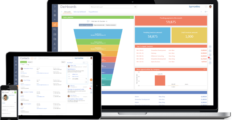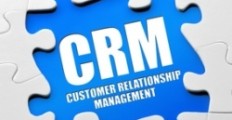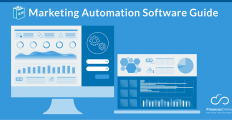Let’s be honest – having an efficient customer relationship management (CRM) tool will do a lot for your business, no matter its size. And it’s not just about profit but also about security and scalability.
Primarily, there are two options: onsite hosting and cloud hosting. Each has its benefits and setbacks.
On top of those two options, there are countless programs to pick from when it comes to cloud hosting.
In this guide, we will help you pick from both onsite and cloud hosting and different software related to web hosting.

Cloud Hosting vs Onsite Hosting for CRM
If you are running a small business, you will probably not even think about onsite hosting. On the other hand, if you’re managing a huge company where security risk is unacceptable, then you have likely thought about an alternative to cloud hosting.
Before we get into the difference between the two for your CRM, let’s introduce ourselves to both of the methods.
Onsite Hosting
On-premise hosting is when you host your CRM system in your company’s building or infrastructure instead of the cloud. This requires you to have space where you can accommodate a server or multiple servers based on the size of your business.
You will have complete control over your CRM with onsite hosting, including the data it contains. As a result, industries that need to follow data protection regulations usually use this kind of CRM hosting.
On the other hand, this type of hosting is way more expensive than having your CRM in the cloud. You will need your own servers and infrastructure to support it. Then there is the question of maintaining it as well.
Cloud Hosting
The more popular option – cloud hosting – is when you rely on a third party to host your CRM. The information is stored on the cloud or a global network of servers.
This type of hosting is scalable in both ways. As in, no matter if you’re increasing the size of your business or scaling down, you can always have different modes of operation with cloud hosting.
It is much cheaper as well. You don’t need to have your own server or infrastructure. And don’t need to worry about maintaining it.
Picking the Most Efficient CRM Hosting
Cloud hosting will be the go-to option for most businesses. However, it may not be the most efficient choice for all.
When we are talking about efficiency, it’s important to consider a few factors, such as –
- Scalability: Cloud is the easiest option for scalability. You can easily scale up or down with cloud CRM hosting.
- Control: If you’re looking for full control over your CRM and its data, onsite hosting is going to be the answer.
- Maintenance: Hosting servers and hardware need maintenance, and the software requires regular updates. Doing this will be much more expensive and time-consuming for onsite hosting.
- Data Security: While cloud hosting will offer the best security protocols, there is always a chance of data breaches. With onsite hosting, you can have direct oversight of data security protocols.
- Cost: Due to their typical pay-as-you-go structure, cloud CRM solutions are the most cost-effective. As a result, smaller businesses should opt for the cloud.
- Customization: You may want a unique CRM software. In this case, having your CRM onsite will allow you to fully customize the system.
Best CRM Software for Efficiency
Now, let’s get into more specific recommendations for your CRM in regard to efficiency.
There are countless options in the market. But when we are talking about efficiency, only a few come to mind. For a CRM tool to be efficient, it needs to provide the most value, reduce the required time to get set up and integrate with different software in the market.
For example, a CRM tool that can not only automate the process of gathering your customer data but also help close a deal can be the best choice in this regard. With that in mind, here are some of the recommended choices:
HubSpot CRM
HubSpot CRM is one of the most popular CRM systems on the market today, and it won the Best CRM Software Award for 2023 by Finances Online.
It’s free software with smart and easy options, including all the basic features you will need without being complex. As a result, HubSpot remains a great starting point for new and mid-level enterprises.
Moreover, it can interact with popular apps like Salesforce, Microsoft Dynamics, Zapier, and Shopify, including many others.
If you are looking for more intricate features, then HubSpot also offers paid plans starting from $50/month all the way up to $2,400/month. However, it is mostly used for free to get into the complex world of CRM by new businesses.
Salesforce CRM
Salesforce is a popular name in the field of analytics, marketing, community and service. They also offer a CRM solution that’s one of the best-paid options in the market.
One of the most prominent features of Salesforce CRM is how it can automate customer data and help you generate the best leads. As a result, you can expect more conversions with this software.
No matter if you are at the office or anywhere else in the world, you can access your customer data, even with your iOS or Android devices. You are able to customize what information you see first and add more functions with AppExchange.
Salesforce can integrate with solutions like Desk.com, LeadExec, TeamSupport, Zuroa, and many other CRM solutions to have a more seamless switching process.
The most basic package of Salesforce CRM comes at only $25/month and the unlimited option goes for $300/month.
NetSuite CRM
If you are looking for a solution that can help you with the earliest stage of lead management all the way to conversion and post-sale support, then NetSuite CRM is a suitable option.
Unlike other CRM options in the market, NetSuite does not provide monthly plans. Instead, you can contact them and ask for a quote-based plan that can be tailored for your business. As a result, medium to large organizations can find a suitable plan that can handle a large customer base and tons of data without being limited to anything.
NetSuite CRM customers find integrated contact management to be a very beneficial feature. Contact information, including their function within their firm, correspondence history, and complaints about your products and services, is available.
The program enables users to keep an eye on prospects and track their activity. It guarantees that your company consistently receives high-quality leads, resulting in higher sales figures.
NetSuite CRM allows you to track all activities that your clients and visitors perform on your website and import their data into the system.
Even if you do not extract personal customer information, NetSuite CRM logs all internet pathways clients travel, including links clicked and pages seen.
Final Words
No matter if you are opting for a popular cloud-based tool or building your own infrastructure, it’s mandatory to figure out the needs of your organization and see if you are able to fulfill them with your choice of CRM.
Small-scale businesses often tend for cloud tools as it’s cheaper, more scalable, and do not require maintenance. On the other hand, enterprises with sensitive customer data often go for on-premise solutions.






















Leave a comment!